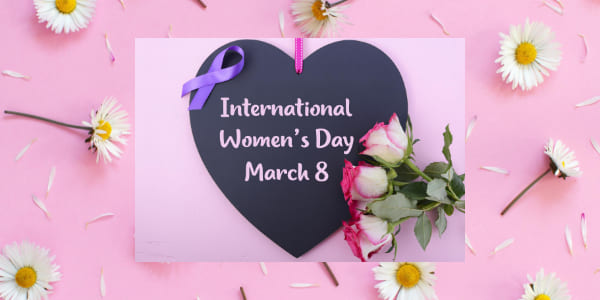International Women’s Day 2023: Celebrating Women’s Achievements and Advocating for Gender Equality

International Women’s Day is a globally celebrated occasion that falls on March 8th every year. It is a day that recognizes the social, economic, cultural, and political achievements of women around the world while also advocating for gender equality. This year, International Women’s Day 2023 is an opportunity to celebrate women’s contributions and highlight the ongoing fight for gender equality. In this article, we will explore the history and significance of International Women’s Day, highlight the achievements of women over the years, and discuss the ongoing challenges and opportunities for women in the 21st century. Best Happy Birthday Wishes
History and Significance of International Women’s Day
International Women’s Day has its roots in the labor movement of the early 20th century. The first International Women’s Day was observed on February 28, 1909, in New York City, as a way to honor the 1908 garment workers’ strike. Women’s rights activists around the world quickly adopted the idea of celebrating International Women’s Day, and it became an annual event in many countries. In 1917, Russian women marched in St. Petersburg to protest the war and the food shortages. The protests, which coincided with International Women’s Day, were a catalyst for the Russian Revolution and eventually led to the adoption of women’s suffrage in Russia.
Over the years, International Women’s Day has become a platform for women’s rights activists around the world to advocate for gender equality, raise awareness of women’s issues, and celebrate women’s achievements. The United Nations officially recognized International Women’s Day in 1975, and it has since become a global event celebrated by governments, organizations, and individuals around the world.
Celebrating Women’s Achievements
International Women’s Day is an opportunity to celebrate the achievements of women around the world. Women have made significant contributions to society in every field imaginable, from science and technology to politics and the arts. However, women’s achievements have often been overlooked or undervalued, and it is important to take this day to recognize and honor them.
In the field of science, women have made groundbreaking discoveries that have revolutionized our understanding of the world. For example, Rosalind Franklin’s work on X-ray crystallography was instrumental in the discovery of the structure of DNA, but she was not recognized for her contributions until many years later. Similarly, Marie Curie’s work on radioactivity was groundbreaking, but she faced discrimination and criticism because of her gender.
In politics, women have broken barriers and shattered glass ceilings. In 2022, Kamala Harris became the first woman, the first Black person, and the first person of Indian descent to be elected as the Vice President of the United States. Similarly, in 2021, Ngozi Okonjo-Iweala became the first woman and the first African to be appointed as the Director-General of the World Trade Organization.
In the arts, women have created some of the most influential and memorable works of literature, music, and film. Toni Morrison’s novels have won numerous awards and have been instrumental in highlighting the experiences of African American women. Beyoncé’s music has inspired millions of people around the world and has helped to elevate Black culture and identity.
Ongoing Challenges and Opportunities for Women
Despite the progress that has been made, there are still significant challenges facing women around the world. Women continue to face discrimination, harassment, and violence in many areas of their lives, and the COVID-19 pandemic has exacerbated many of these challenges. Women have been disproportionately impacted by the pandemic, with increased caregiving responsibilities, job loss, and mental health challenges.
However, there are also many opportunities for progress and change. The #MeToo movement has sparked a global conversation about sexual harassment and assault, and many organizations and individuals are taking steps to address these issues. The United Nations has set a goal of achieving gender equality by 2030, and there are many initiatives and programs in place to work towards this goal.
In addition, many women around the world are breaking barriers and achieving success in fields where women have historically been underrepresented. For example, in 2021, Kim Ng became the first woman to be hired as a general manager in Major League Baseball. This is a significant milestone for women in sports, and it paves the way for more women to take on leadership roles in this and other male-dominated fields.
FAQs: International Women’s Day
- What is the theme for International Women’s Day 2023? The theme for International Women’s Day 2023 has not been announced yet. However, in the past, themes have focused on issues such as gender equality, women’s empowerment, and ending violence against women.
- How can I get involved in International Women’s Day 2023? There are many ways to get involved in International Women’s Day 2023. You can attend events in your local community, participate in online campaigns and social media activities, donate to organizations that support women’s rights, and educate yourself and others about issues affecting women.
- What are some ways to support women’s empowerment? There are many ways to support women’s empowerment, including advocating for gender equality, supporting women-owned businesses, mentoring and supporting women in your personal and professional networks, and educating yourself and others about women’s issues.
- Why is it important to celebrate International Women’s Day? International Women’s Day is important because it recognizes the achievements of women around the world and advocates for gender equality. It is a reminder that there is still work to be done to ensure that women have the same rights and opportunities as men.
- What can we do to promote gender equality in our daily lives? We can promote gender equality in our daily lives by challenging stereotypes and biases, advocating for policies and practices that promote gender equality, supporting women in our personal and professional networks, and educating ourselves and others about the importance of gender equality.






